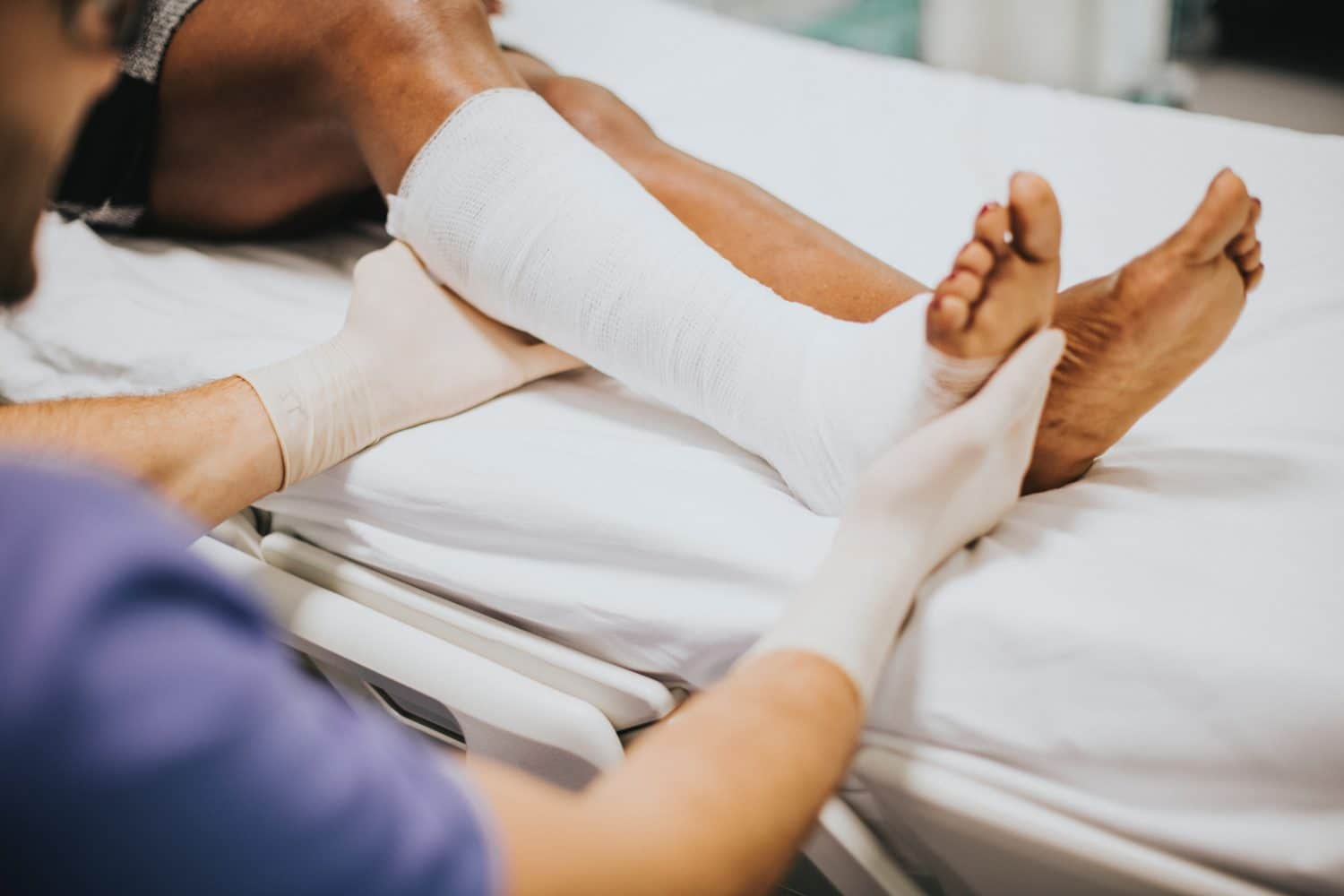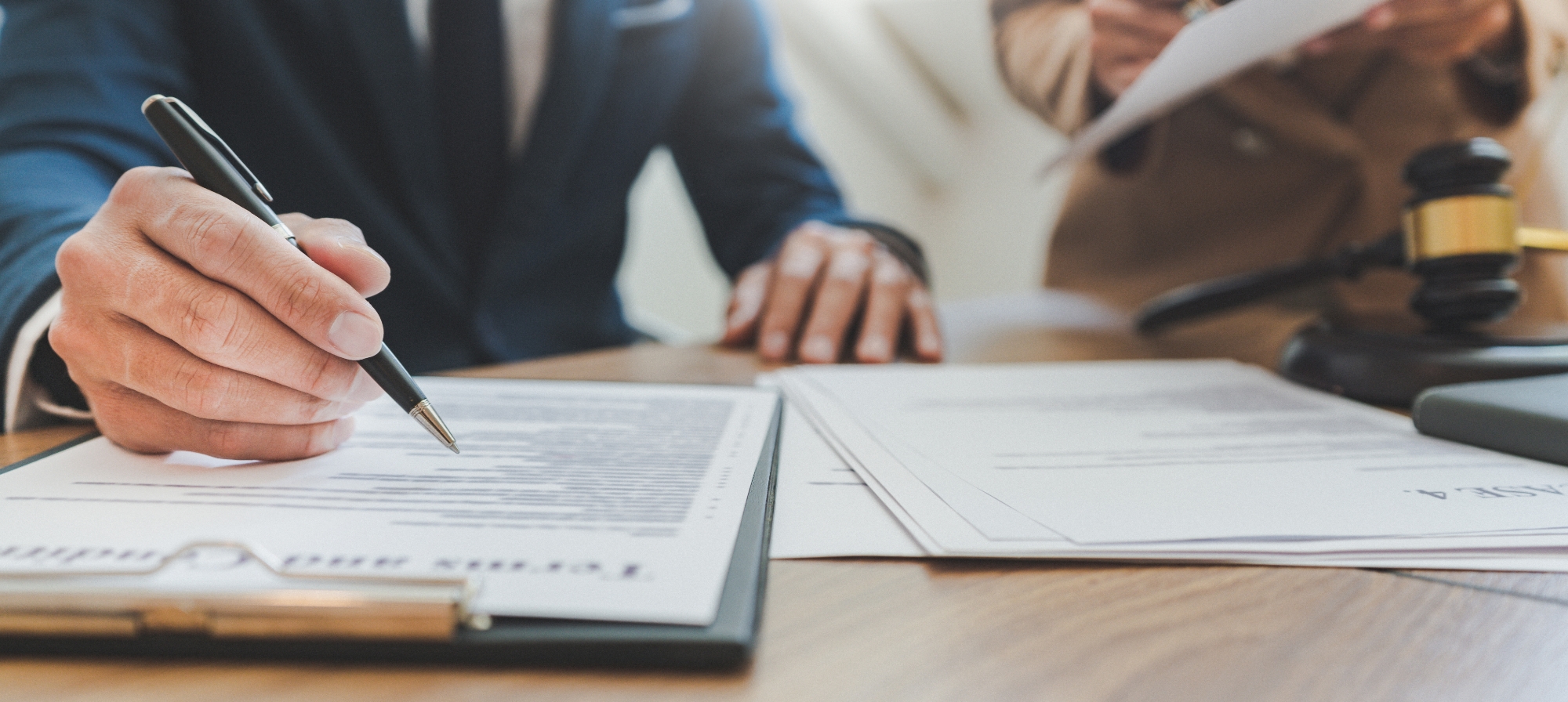After a car crash or catastrophic accident, most people are eager to heal and get back to their normal lives. Unfortunately, many accident victims experience a slower recovery than they expect. Below, the injury experts at Crosley Law discuss some common factors that can impact your healing time—and explain how a complicated injury can impact your personal injury claims.
Preexisting Conditions Can Lengthen Your Healing Time
Arthritis, degenerative joint disease, and other conditions can predispose you to injury. But other conditions can impact your body’s ability to heal after you’ve already been hurt.
Your body needs oxygen, nutrients, and specialized cells to recover from an injury. When you have a condition that reduces bloodflow, your body has a harder time delivering these essentials to an injured body part.
While many conditions can impact your ability to heal, some are more common than others. They include diabetes, immune deficiencies, peripheral vascular disease, and COPD. If you have any of these conditions, make sure you report them to your doctors. They can change your treatment plan to address your specific needs, and they can more carefully monitor your healing process.
Additionally, insurance companies sometimes try to use preexisting conditions as a reason to deny personal injury claims. For example, the insurance adjuster might argue that your need for back surgery is related to preexisting degenerative changes and not the trauma of a collision. Or the insurance company might allege that your nerve pain is related to diabetes, rather than the trauma of a car crash.
“Insurance companies sometimes try to use preexisting conditions as a reason to deny personal injury claims. “
Ignoring Your Mental Health Can Make Your Pain Worse After a Car Accident Injury
Studies show that your mental health can impact your healing—for better and worse. Mental health conditions like depression and anxiety can increase your pain levels and slow down your healing process. Pain and mental health conditions can also make each other worse. Your pain-related symptoms increase your anxiety and depression and vice versa.
RELATED ARTICLE: Don’t Ignore Your Mental Health After a Car Accident
If you’re feeling overwhelmed, lack the motivation to perform daily activities, or are experiencing other symptoms of depression or anxiety, consult with your doctor. Counseling, medication, and other therapies may help reduce the severity of your symptoms.
If you’re struggling with thoughts of suicide or self-harm, seek treatment at the ER immediately or call the National Suicide Prevention Lifeline: 1-800-273-8255.
Post-accident mental health treatment can also help your personal injury claims. When you see a psychologist or other mental health provider, their notes might become valuable evidence that documents the severity of your symptoms and their connection to the car crash. Your injury lawyer can use this information to strengthen your claims and calculate your damages.
Tobacco Use Slows the Healing Process of Car Accident Injuries
Before you undergo surgery, your doctor will strongly encourage you to stop smoking. In fact, some surgeons will refuse to operate until you’ve beaten your tobacco habit for a period of time. This isn’t just your doctors picking on you. Research shows that tobacco use slows your body’s healing processes. Smokers are two to ten times more likely to experience certain types of healing problems than non-smokers.
Tobacco includes many chemicals, including nicotine, carbon monoxide, and hydrogen cyanide. These chemicals slow your healing process in several ways:
- Reducing the amount of oxygen in your blood
- Thickening your blood, making it harder for it to reach your injury
- Weakening your immune system
- Causing painful swelling or inflammation
These issues can slow the healing of soft tissues and even cause non-unions, where bones fail to fuse back together after a fracture or surgery.
We know that it’s hard to quit smoking or using tobacco. But your doctors can help you build a tobacco cessation plan that empowers you to fight your nicotine dependence.
If you continue to smoke before and after surgery, it can also create problems in your personal injury claim. Insurance companies sometimes argue that continued nicotine use is a form of noncompliance with prescribed treatment and deny compensation.
Your Age Can Impact Your Ability to Tolerate Treatment and Make a Full Recovery from Car Accident Injuries
Scientists aren’t entirely sure why it takes longer to heal as you age. It may be that your cells become less effective at fighting off infection. Or age might impact your body’s inflammatory responses that help stop bleeding and encourage new tissue growth. Studies also suggest that your collagen, which helps you heal and build scar tissue, changes as you age.
RELATED ARTICLE: Car Accidents Are Uniquely Dangerous for Seniors
Additionally, as you age, you’re more likely to develop preexisting conditions that impact your ability to heal and tolerate certain types of treatment. For example, COPD and heart disease might limit your ability to perform intensive physical therapy or make you a poor candidate for surgery.
Just like preexisting conditions, insurance companies use your age to deny claims. If you’re an older person, you should fight back. Research suggests that preparation and self-care can help you heal. You can also look for resources within your community and support network that can help you while you’re healing. For example, you might want to take advantage of San Antonio’s wide array of senior services, including transportation for doctor’s appointments. Finally, contact Crosley Law for information about your legal options.
When Injuries Are Slow Healing, You Need A San Antonio Lawyer at Your Side
Texas applies the “eggshell skull” rule in personal injury cases. This means that the insurance company can’t deny your claim because you have prior conditions or heal more slowly. However, the insurance company may still try to reduce the value of your claim.
RELATED ARTICLE: What Is the Eggshell Skull Doctrine and How Does It Apply to Texas Car Accident Cases?
Insurance companies are always looking for reasons to deny car accident claims. Adjusters try to spin slower-than-expected recoveries into something more malignant. It might argue that you are faking your symptoms. It might even pay private investigators to follow you and record your daily activities.
The insurance adjuster might also reject your medical bills by saying that the treatment is no longer reasonable and necessary because you’re not improving.
In these situations, you should consult with a personal injury lawyer. At Crosley Law, we understand insurance company tactics and how to address them. We use sophisticated litigation strategies and tools to demand justice and fair compensation for our clients. To learn more about our unique approach to injury law, contact us for a free consultation.
Crosley Law: We Demand Justice for Texas Accident Victims
Crosley Law has built a reputation in San Antonio and throughout Texas for our personalized client experience and tireless advocacy. We’re proud of our track record of success, and we demand fair compensation for our clients’ injuries in every one of our claims. To learn more and request a free consultation, contact us at 210-LAW-3000 | 210-529-3000 or online.
References
American Orthopedic Foot & Ankle Society (n.d.). How smoking affects healing. AOFAS. Retrieved from http://www.aofas.org/footcaremd/how-to/foot-health/Pages/How-Smoking-Affects-Healing.aspx
Ashcroft, G., Mills, S., & Ashworth, J. (2002, February). Aging and wound healing. Biogerontology. Retrieved from https://www.researchgate.net/publication/10966569_Aging_and_wound_healing
Nova, A. (2018, February 11). Older patients recover from surgery faster if they “train” for it. CNBC. Retrieved from https://www.cnbc.com/2018/02/08/older-patients-recover-from-surgery-faster-if-they-train-for-it.html
Ruben, B. (2014, August 13). 11 comorbidities that inhibit wound healing. WoundSource. Retrieved from https://www.woundsource.com/blog/11-comorbidities-inhibit-wound-healing
The content provided here is for informational purposes only and should not be construed as legal advice on any subject.









